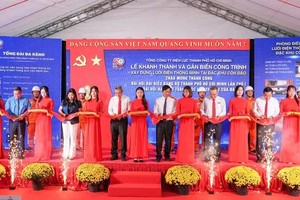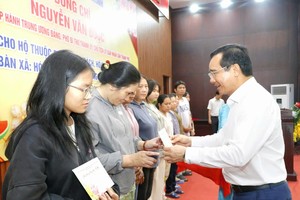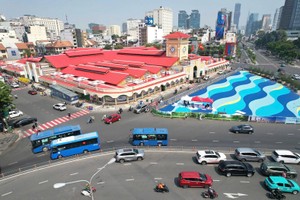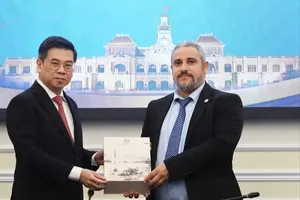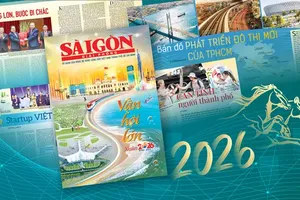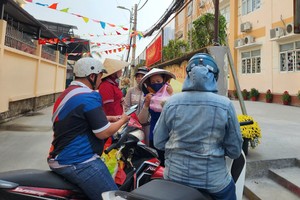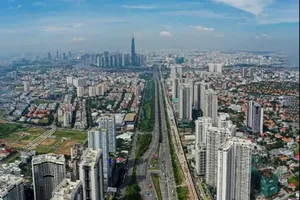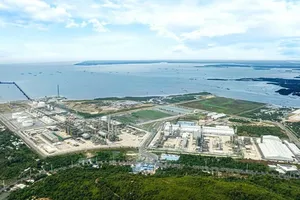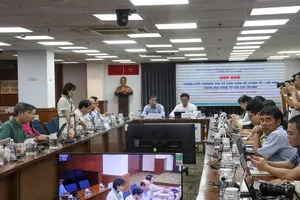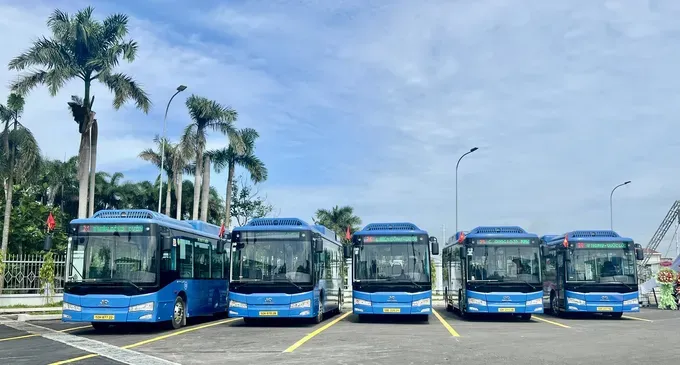
The Ho Chi Minh City People’s Committee has proposed that the Standing Board of the Party Committe of the HCMC People’s Committee review, agree upon, and submit to the Standing Board of the Ho Chi Minh City Party Committee for approval a resolution on transitioning the city’s bus fleet to electric and green energy vehicles.
On the afternoon of October 28, Vice Chairman of the Ho Chi Minh City People’s Committee Bui Xuan Cuong signed submission No. 611/TTr-UBND, sent to the Standing Board of the Party Committee of the municipal People’s Committee. The document proposes the issuance of a resolution by the Ho Chi Minh City People’s Council outlining the roadmap and support policies for transitioning the city’s public passenger transport system to electric and green-energy buses.
According to the Ho Chi Minh City People’s Committee, the proposed resolution will serve as a foundation for the city to gradually transition its public transport vehicles from fossil fuels to electric and green energy sources. The initiative aligns with Ho Chi Minh City’s orientation toward sustainable urban mobility, reducing greenhouse gas emissions, and protecting the urban environment.
By 2030, Ho Chi Minh City aims to complete the transition of its entire bus fleet to electric or green-energy vehicles, 20 years ahead of the national roadmap set by the Government. The initiative forms part of the city’s plans to enhance public passenger transport while controlling the use of personal motor vehicles, as well as its program to manage emissions from road transport.
For the 2026–2030 period, the total estimated cost of converting the city’s bus fleet to green energy is VND7.58 trillion (approximately US$287.5 million). Of this, the municipal budget will allocate approximately VND4.67 trillion (US$177 million), excluding an additional VND822.4 billion (US$31.2 million) in loan interest subsidies for vehicle and charging station investments, which will be disbursed over a period of 2036.
Alongside the transition to electric and green-energy buses, Ho Chi Minh City is accelerating the development of its metro and light rail transit (LRT) projects, as well as a program to shift motorbikes used for ride-hailing and delivery services from gasoline to electric power. The initiative will focus on policies supporting the purchase of new electric motorbikes and the phase-out of old vehicles.
The city also encourages businesses to invest in charging infrastructure, battery rental services, and the issuance of green bonds, while promoting carbon credit trading. Public-private partnership (PPP) models are being considered for the construction of large-scale public charging stations.
Under the city’s roadmap, Ho Chi Minh City aims by 2030 to cut 90 percent of additional air pollutants generated by transportation, achieve a 15 percent–20 percent of electric motorbikes, 5 percent–10 percent of electric cars, and have public transport meet 15 percent of travel demand. Looking further ahead to 2050, the city plans for 100 percent of vehicles to run on electricity or green energy, moving toward a net-zero emissions target.
